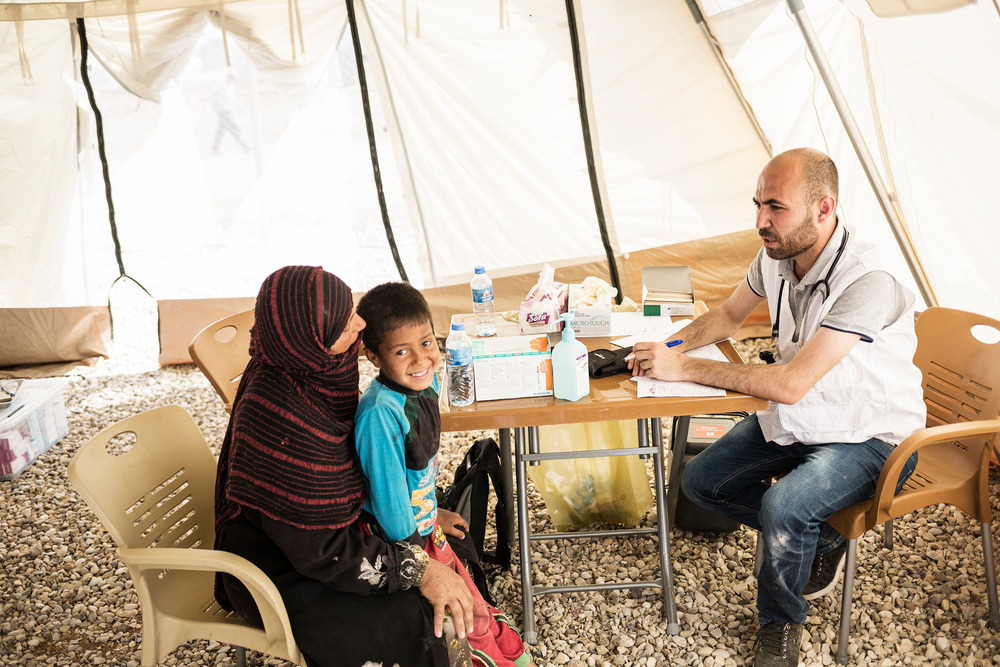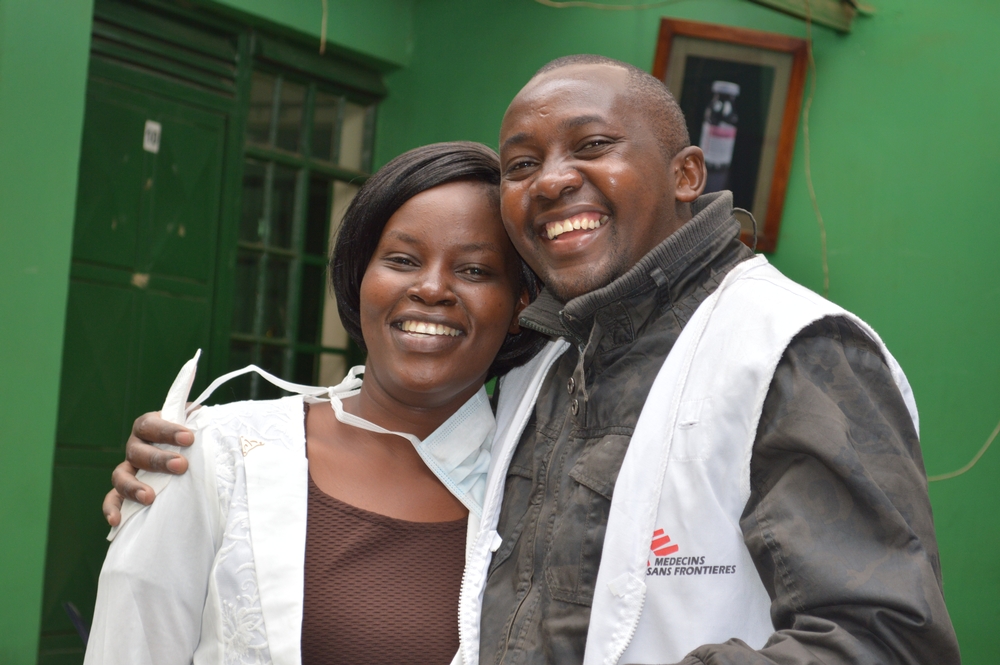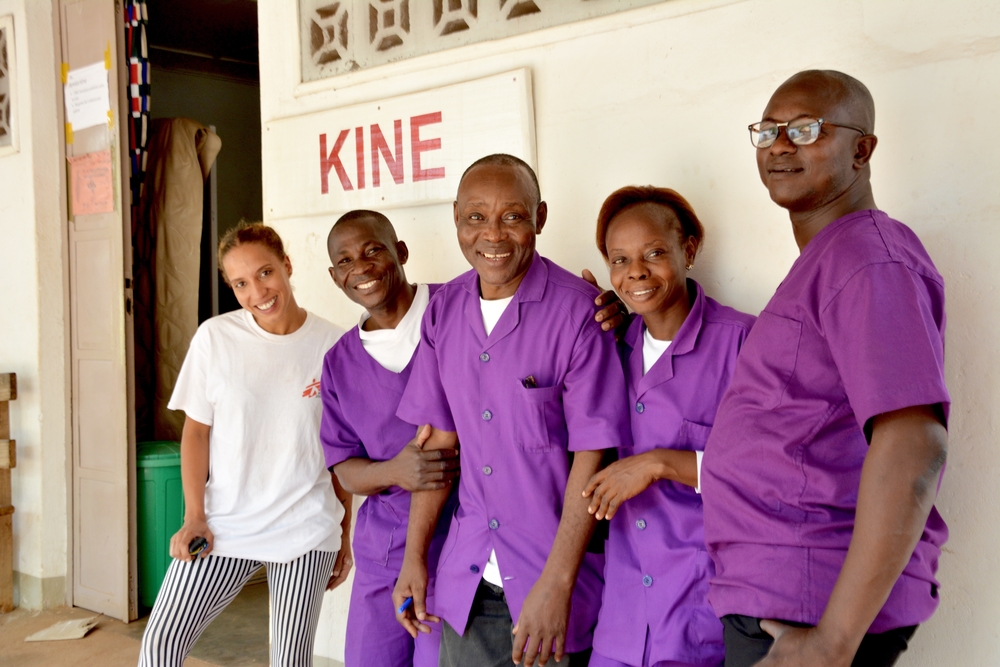Recruitment Zone Summer 2019: Language skills matter
Welcome to the Summer 2019 edition of The MSF Canada Recruitment Zone newsletter. The Recruitment Zone helps connect professionals in Canada with opportunities to join Doctors Without Borders/Médecins Sans Frontières (MSF)’s lifesaving humanitarian medical action around the world — and to become a part of our efforts to provide essential care to people affected by crisis, conflict, disaster or neglect.
MSF is always looking for experienced professionals to help us deliver humanitarian emergency medical care to people in need around the world. Our work draws upon a wide range of skill sets, so we recruit people from many different backgrounds —medical and paramedical profiles, human resources and finance specialists, engineers, logisticians and more.
Why language skills are important
But the one skill that everyone who works for MSF must have is the ability to communicate effectively. Our field teams are made up of people from all around the world, and when they find themselves together on the front lines of the world’s humanitarian crises, it is essential that they understand one another. That’s why we insist that our international field staff be able to work capably in English, French or Arabic, which are the primary languages of communication in different MSF projects across the globe.
As a member of the Recruitment Zone, you have already indicated your interest in working overseas with MSF. If you live in Canada, there’s also a good chance you are fluent in at least one of the languages we most need. Because English and French are Canada’s two official languages, Canadians often have an advantage when it comes to being placed in an MSF project overseas, since many can already speak both.

A little bit of French or Arabic can go a long way
If you’ve been able to read and understand this message so far, then you probably feel comfortable communicating in English. But English alone is not enough to make your application stand out — while it is a key language for MSF operations, French is also vital in a large number of the contexts where we work, as is Arabic. So applicants who can speak either of those in addition to English have a better chance of success.
And it’s important to remember that applying to work for MSF is a competitive process: field positions are filled from a global pool of applicants, who may come from any of the countries around the world where MSF recruits from. Many of those applicants may already speak some of the languages that are most well-suited to the contexts where MSF works. So if you’re an English-speaking Canadian who wants to contribute to MSF’s humanitarian operations around the world, it might be a good plan to dust off some of that high school French you learned years ago before you apply. (If you can also dust off some Arabic while you’re at it, that’s even better.)
‘I took classes and worked hard’: How a Calgary nurse improved her French to work with MSF
MSF field worker Sarah Curley recently learned the benefits of brushing up on her language skills. An English-speaking nurse from Calgary, Sarah knew that an ability to work in French would improve her application to work with MSF, so she took some French classes in her spare time and worked on improving her fluency in a language she had previously had little opportunity to use in her day-to-day life.
“I had really wanted to work for MSF for some time,” she says. “So I took classes and worked hard and tried to get myself up to a higher level. And I’m so glad that I did.”
Last year, Sarah left on her first overseas assignment as part of an emergency response team in the Democratic Republic of Congo. Most of her colleagues were Congolese and the language of work was French. “It wasn’t always easy, I’ll tell you, and sometimes it was quite hard,” she says. “But it was so worth it. And I was comfortable enough in my abilities that even when I struggled, I was able to have a sense of humour about it, and that made it easier.
“I think that improving my French and working in a different language also helped me to be a better nurse,” Sarah adds. “It taught me a lot about how to communicate with people when you don’t necessarily share a language, and as a nurse that has been an invaluable skill. And it gave me confidence that I can handle a lot of the challenges of this kind of work.”
How fluent do you need to be?
To get a better sense of how your current level of language skills matches up with what we’re looking for, you can consult the Language Self-Assessment Grid, which MSF uses as a guideline when determining proficiency. Generally speaking, we consider level B1 as a minimum standard language requirement, though it may be higher depending on the context. Because this level is more about functionality than complete fluency, achieving it can be more easily within reach — many of our successful Canadian applicants have benefited from immersion or second-language courses before applying, or even just short refresher programs.

Wairimu Gitau/MSF
MSF depends on qualified professionals from Canada and other countries to help us deliver high quality medical care and humanitarian aid to people affected by crisis, conflict, neglect or disaster. If you’re an English-speaker with the skills we need who is interested in joining our field teams overseas, brushing up on your French before you begin the application process is often a very good idea. It’s a small investment that can make your journey from applicant to field worker that much closer to becoming a fait accompli.
Thank you for your interest in MSF, and for supporting our lifesaving humanitarian medical action.
Sincerely,
The MSF Canada Recruitment Zone team
